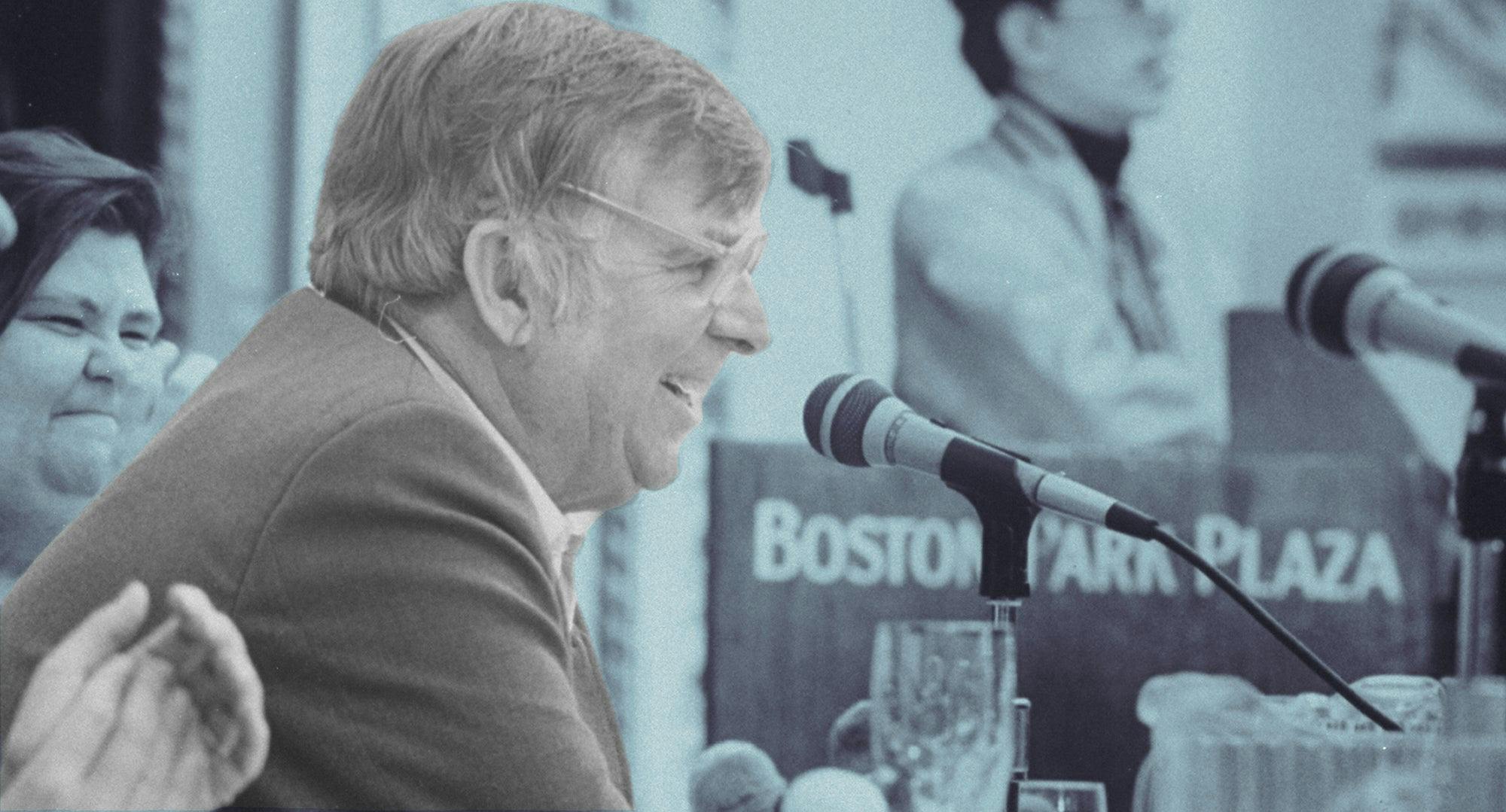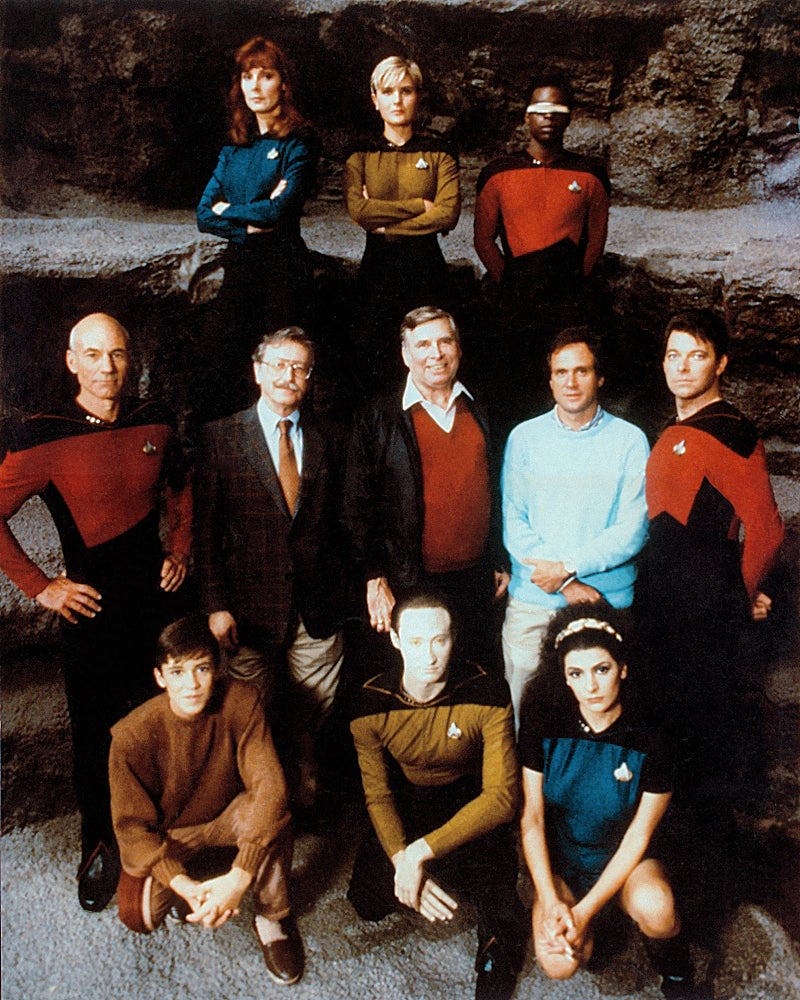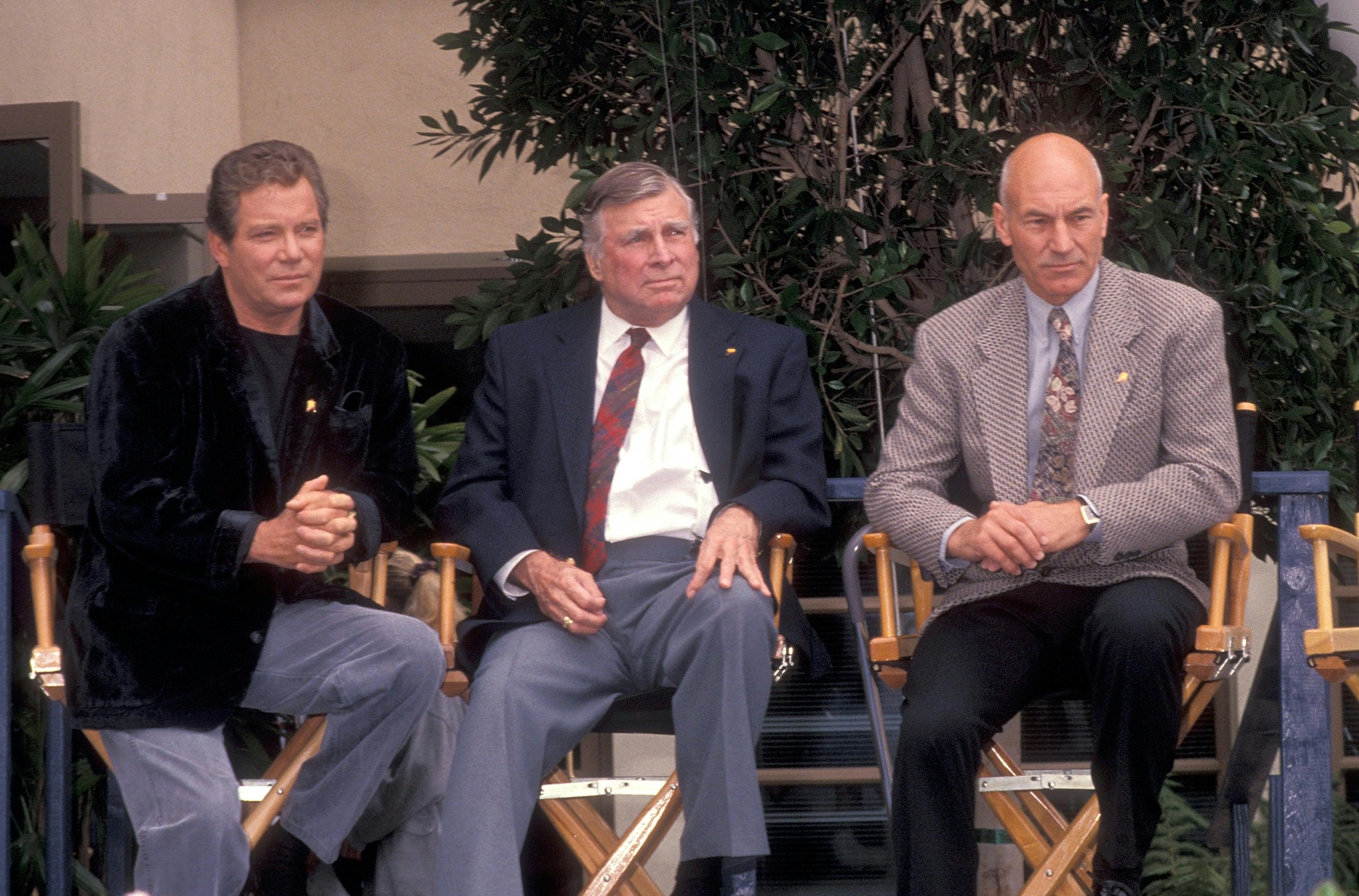Published Sep 8, 2019
Looking at 'Trek''s Past for a Glimpse into the Future
For Star Trek Day 2019, we're looking at the deliberate way Gene Roddenberry introduced TNG to the world.

StarTrek.com/Getty
In 1986, Gene Roddenberry and Paramount broke the seal on an endeavor that had been lying in wait for someone to brave enough to open. After 20 years of Star Trek stories focused on the Original Series cast, Roddenberry would attempt to capture lightning in a bottle twice.
A brand new TV series. Unfamiliar characters. A new cast. A new generation. And almost a century ahead in the timeline established by TOS — the show that debuted on this very day in 1966. While there were important story elements and behind-the-scenes details to establish, we can now see how much Roddenberry’s attitude toward this initiative has influenced future expansions the mythology, straight through into 2019’s “Golden Age” of Trek. If not for his supportive and optimistic mindset, we might not have the unmatched canon of work fans love today.

StarTrek.com
The moment arrived on October 10, 1986. A press conference was held on the Paramount Studios backlot. Mel Harris, then president of Paramount Television Group, began the event with this statement:
“The subject of our announcement today has been reported as imminent off and on for about 15 years. As recently as this morning, in fact. Well, the speculation is over. The answer is ‘yes,’ Star Trek lives. Starting next fall, beginning with a two-hour telefilm, followed by 24 original one-hour episodes, Star Trek will return to television in the form of a new series, Star Trek: The Next Generation.”
The announcement came amidst the success of three Star Trek feature films, along with Star Trek IV: The Voyage Home arriving the following month and grossing over $109 million dollars at the U.S. box office. Harris pointed out that TOS had been in syndication for 17 years and was still the number one rated off-network hour of television. With the series being a reliable draw for the 18-34 and 18-49 demographics, he also said TV advertisers have taken note on the franchise’s wide-appeal.
On top of this pragmatic reasoning from a TV executive’s perspective, Gene Roddenberry was soon called up to the podium to speak about why he wanted to create a new Star Trek TV series.
“I was feeling kind of tired, so I woke up early to think over what I might say on this subject,” said Roddenberry. “And after about an hour long, deep in thought, I decided that probably the reason I'm doing this is everything was going too well and that doesn't feel comfortable.”
His thoughts then turned to TOS and on what it taught him about the entertainment industry.
“Hollywood, I sincerely believe, is the one place in the world where a committee does create something,” said Roddenberry. “[The TOS cast and crew] was really as good of group as I think that anyone could work with in this town.”
He continued to reflect on how much changed during the ‘60s. In particular, Roddenberry brought up how the space backdrops were created with a black sheet they had poked holes in. On top of special effects, he pointed out aspects of TOS that were considered by many to be controversial.
“We offended a lot of people in those days by having what's spoken of as 'neo-communistic' ideas like a multiracial crew and sexual equality,” said Roddenberry. “I dearly hope I will offend some of you with this new one, because we must continue to do that. We must continue to talk about exciting and different things.”
These stories became an organic segue to discussing his approach toward expanding Trek’s future.
“Speaking personally, I would not give that amount of time and effort and pain and separation for my family to do a retread of what I'd done before. I don't like to copy from other people and I don't like to copy from myself,” said Roddenberry.
All things considered, the biggest theme from this press conference was Roddeberry’s focus on creating another original series. While the series would be a continuation of Star Trek, they shouldn’t be afraid of creating new characters and worlds.
“I never met a writer I respected that wasn't afraid every morning that this is the day they find me out. I still have that fear, but I hope to give you something that will be enjoyable and exciting,” said Roddenberry. “It's that doubt that keeps you grabbing and gnawing feelings here and keeps you working.”

Getty Images
The following January, Roddenberry spoke to Entertainment Tonight about the writers room for The Next Generation. He reaffirmed his attitude toward the previous 20 years of Star Trek and how it’s vital to not treat the show as a sacrament.
“Any legend that I have a part in is not holy to me,” Roddenberry told ET. “I am a writer. The way Paramount interested me in this one, they said it's impossible to do again. At which point, my ears perked up.”
The supportive atmosphere Roddenberry instilled within Trek’s creative, production, and relationship with fans in this initial venture has stood the test of time. It was a pivotal moment that set the tone not only for The Next Generation, but for all future expansions of Star Trek mythology on TV and the silver screen.
Whether or not Roddenberry was aware of this moment’s importance, it’s a testament to him that he was willing to take the first steps outside of the TOS-comfort zone. The success of his risk has been paying off for years to come. He’ll always be known for creating the flagship series which spawned a diverse, complex franchise with themes and a core philosophy substantial enough to carry on through dozens of films and TV shows. None of that would have been possible without his positive and practical outlook, which perhaps not so coincidentally happened to parallel the values he instilled in the mythology at the center of it.
Joe Bergren (he/him) is a media coordinator and contributing video producer for ET Live. His interests include "Star" related franchises and retro celebrity scandals, as well as niche subjects like his very cool dog. Find him on Twitter @JoeBergs.

